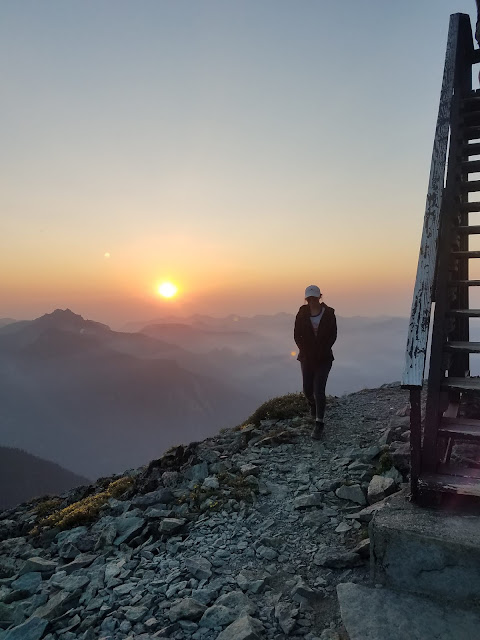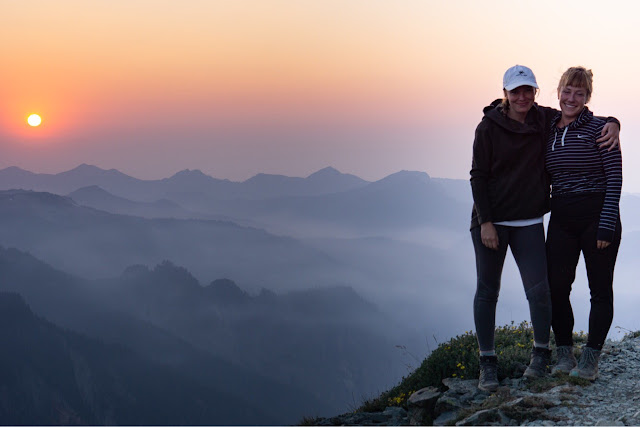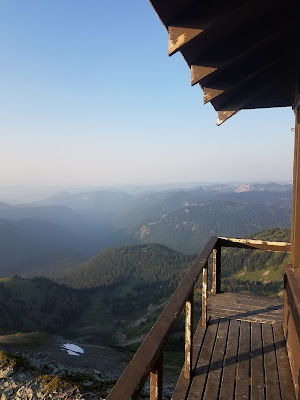Some things are intrinsically, symbiotically connected. Like peanut butter and jelly or Jim and Pam (shout out The Office fans), writers rarely thrive without solitude. Creating narratives requires S P A C E : mental, physical, and emotional, to interact with plot lines and characters, to flush out ideas. Most writers live within an interior world of their own imagination: a specific reality far flung from the majority. Writing is very much an inward journey, well suited to those of us who are typically lost in our own mind anyway. This inherent nature of separation and seclusion makes room for the divine intervention of inspiration.
In the ongoing saga of extinct and outdated professions that Juliet wishes she could do, I present the case of Fire Lookout. Historically, most national parks and federal wilderness areas had mountain top lookouts built where one person was stationed at a time to keep watch for the first signs of forest fires. Lookout towers actually predate the Forest Service itself, which was founded in 1905. Fires spotted from these huts were reported by heliograph and even carrier pigeons before telephones!
"There is an emptiness at the center of our lives-the place
Paradise once filled-and an infinity of silence, I suspect, awaits us at
the end of it." -Gregg Levoy
You may not know that the Pacific Northwest has a rich history of attracting famous writers to these pillars of man-made isolation. Most infamously was Jack Kerouac, who manned the Desolation Peak Lookout within the North Cascades National Park for the Summer of 1956. In fact it was another famous Beatnik writer, Gary Snyder, who first worked as a fire lookout in Washington and recommended the experience to Kerouac for a writer's retreat.
As a sign of the Beatnik times, both men were students of Zen philosophy and relished the thought of practicing renunciation, meditation, and emptiness during their seasonal stints in the middle of nowhere. A lookout position seemed like a perfect fit, an antidote to mainstream, life though reality proved to be a bit harsher than expected. In his book Poets on the Peaks, John Suiter writes that Kerouac didn't bring his beloved cigarettes along and hoped to quit cold turkey while simultaneously writing the next Great American Novel. By day ten, Kerouac was writing the words “Time drags” in his journal and smoking coffee grounds. “I will come face to face with God…” he predicted. “But instead I’d come face to face with myself, no liquor, no drugs, no chance of faking it."
Despite the struggles that tested him, Kerouac's time on Desolation Peak was incredibly transformative, influencing portions of five separate books he would later come to scribe. Just one year after his lookout job ended, Kerouac published one of the most famous novels of all time, On The Road, and become an international star.
The earnest need of the Beatnik authors to question status quo and explore personal freedom through writing resonates deeply with me. I often find myself jealous of their entire generation, who came of age during such a seminal time in American history. Kerouac and the like, famous for their negation of conformity, their unique style, and their once underground community of like minded artists, are essentially my dream clique. Reading about their experiences is like looking through a kaleidoscope of my own feelings and words. It feels familiar yet magical at the same time. |
| Photo by Claire Brummet |
A few past blogs:
Home Alone
The Hole in our Hearts
 |
| Photo by Francis Madrazo |
 |
| Photo by CJ Torres |
"Is anything burning?
The sun itself! Dying
Pooping out, exhausted
Having produced brontosaurus, Heraclitus
This rock, me,
To no purpose
I tell you anyway (as a kind of loving)
Flies & other insects come from miles around
To listen
I also address the rock, the heather,
The alpine fir."
-Philip Whalen, from Sourdough Mountain Lookout
Some more photos from our epic trek last weekend:













No comments:
Post a Comment
Comments Welcome